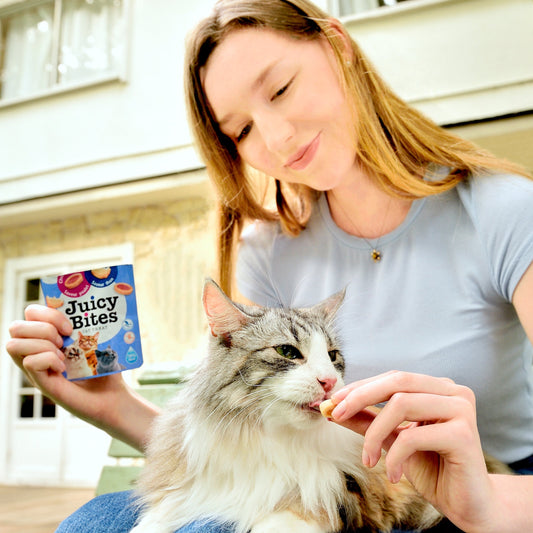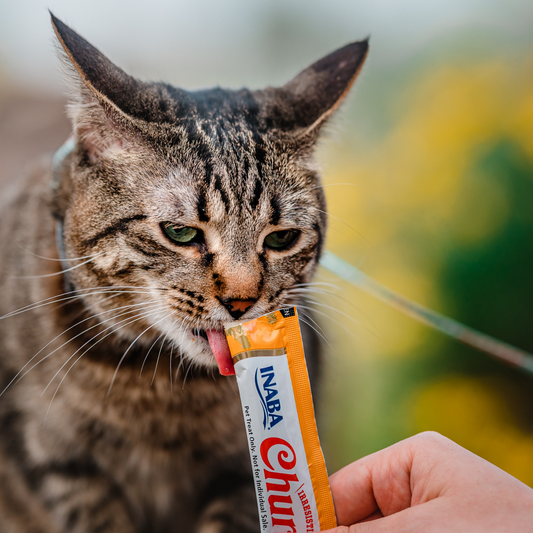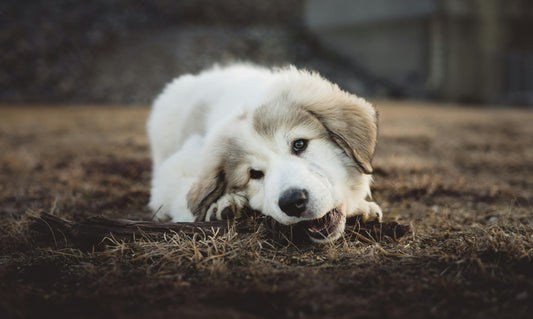Let’s be honest, cat breath isn’t always the freshest. But if your cat’s breath has gone from slightly fishy to full-on foul, it could be a sign that something’s not quite right.
Bad breath in cats can be linked to a number of health issues, including gum infections, tartar buildup, and even more serious dental conditions. So if you’re wondering how to make cats breath smell better, you’re in the right place.
Here are six practical tips about how to fix bad cat breath and support your cat’s overall health.
1. Brush Your Cat’s Teeth
Brushing your cat’s teeth is a simple habit that can make a big difference, as it’s one of the best ways to keep plaque and bacteria under control. Try to brush at least a few times a week using a soft toothbrush or even some muslin cloth and pet-approved toothpaste.
Not sure where to begin? Start slowly, get your cat used to the sensations and smell and feel of the toothbrush and toothpaste first. Short interactions to start are ideal. Then progress to gently lift their lips and brush a few teeth at a time. With patience, love (and treats), many cats will come around.
Learn more in our guide about cat mouth disease for extra tips.
2. Use Dental Supplements, Treats And Toys
There are plenty of supplements, treats, toys, and chews designed to help clean your cat’s teeth as they chew. These work by gently scraping plaque away while they eat, play or snack.
It’s a simple way to support oral hygiene, especially if your cat isn’t keen on brushing. Just make sure whatever you use is vet-recommended and safe for daily use, and remain consistent
3. Try A Water Additive
Water additives are easy to use and can help keep bacteria under control between brushings. They’re usually odourless and tasteless, so most cats won’t even notice them in their water bowl.
It’s not a magic fix, but when combined with other strategies, it can help improve cat breath over time.
4. Choose A Dental-Friendly Diet
Some dry foods are specially formulated to help reduce plaque and tartar. They have a texture that scrapes the teeth as your cat chews, helping to prevent build-up.
If your cat’s breath is consistently bad, ask your vet about switching to a dental-supportive diet.

5. Schedule A Vet Check-Up
If your cat’s bad breath persists, it could be a sign of a deeper issue like cat gum disease, stomatitis in cats, or even cat tooth resorption. A vet can check your cat’s teeth and gums thoroughly, and may recommend a dental cleaning or further treatment.
In some cases, chronic bad breath might be linked to broader health concerns, so don’t ignore it.
6. Watch For Underlying Issues
Sometimes bad breath isn’t just about teeth. Issues like oral infections, kidney disease, or digestive problems can all contribute.
If you’ve tried brushing, water additives, and food changes and nothing is helping, it’s worth getting a full health check. Your vet might suggest blood tests to rule out other conditions.
For more details on related conditions, check out: Is gingivitis contagious in cats.
Why Freshening Your Cat’s Breath Matters
Keeping your cat’s breath fresh isn’t just about smell, it’s about spotting health issues early and giving your cat the best chance at a long, happy life. Dental hygiene often gets overlooked, especially if your cat isn’t showing obvious signs of discomfort. But that fishy smell? It’s your first clue that something might be off.
Think about how much your cat uses their mouth, from eating to grooming and even playing. Pain or inflammation can quickly make these daily tasks uncomfortable. That’s why acting early on bad breath matters more than you might think.
Don’t Forget About Hydration
Cats that don’t drink enough water are more prone to dental problems. Staying hydrated helps with saliva production, which naturally fights bacteria in the mouth. Make sure your cat always has access to clean, fresh water, and consider a cat fountain if they prefer running water.
Some cats are picky, so you might also try adding a splash of water to their food and offering wet food daily is essential.y
Consider including treats that have high hydration levels into your feeding protocol.
Keep An Eye On Behaviour Changes
Sometimes the best clues are in your cat’s behaviour. If your friendly cat suddenly seems withdrawn, stops grooming, or avoids eating their favourite treats, something could be wrong. Dental discomfort often shows up as subtle shifts in how your cat acts.
Staying in tune with these changes helps you spot problems before they get worse. As always, if something feels off, it’s worth checking in with your vet.
Creating A Breath-Friendly Routine For Your Cat
If you’ve been wondering how to freshen cat breath, the answer isn’t just one thing, it’s about building a routine that includes brushing, good nutrition, and regular checkups. Your cat might not thank you for the toothbrush at first, but they’ll feel better for it.
Bad breath is more than just a nuisance. It’s a helpful signal that something might need attention. And the sooner you act, the happier (and better-smelling) your cat will be.
Wondering how to improve cat breath? The answer usually lies in a combination of regular dental care and a little help from your vet. Start small, stay consistent, and you’ll not only freshen your cat’s breath, you’ll be supporting their long-term health, too.




